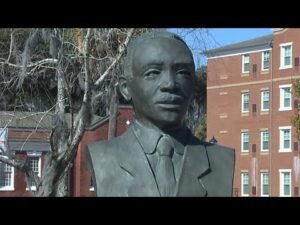African American Activist - The Voices That Changed History
The term African American activist symbolizes the relentless struggle for equality, justice, and human rights. These figures have left an indelible mark on history, championing causes that have reshaped laws, challenged societal norms, and inspired generations. From the fight to abolish slavery to the ongoing quest for racial justice, their influence continues to ripple through time. But what are the lessons we can learn from their resilience and their unyielding commitment to change? Let’s delve deeper into their stories, strategies, and the lasting impact of their efforts.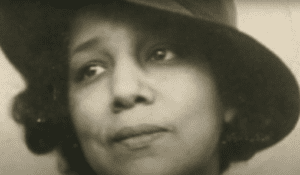
The Legacy of African American Activism: A Historical Overview
The journey of African American activists spans centuries, marked by perseverance against systemic oppression. Their actions, whether through direct confrontation, legal challenges, or cultural expression, have altered the course of American history. The Early Fighters for Freedom During the 18th and 19th centuries, African American activists laid the foundation for liberation: - Frederick Douglass: An influential writer and orator, Douglass’ autobiographies exposed the brutal realities of slavery and became powerful tools for abolitionist efforts. - Harriet Tubman: Tubman’s daring missions through the Underground Railroad demonstrated her leadership and dedication to freedom, earning her the title “Moses of her people.” These activists’ lives underscore the importance of resilience and leadership in the face of adversity. The Civil Rights Movement: A Turning Point The mid-20th century brought an organized and widespread challenge to racial segregation and disenfranchisement. Key figures include: - Rosa Parks: Parks’ refusal to surrender her bus seat in Montgomery symbolized defiance and sparked the broader civil rights movement. - Martin Luther King Jr.: As the voice of nonviolent resistance, King’s speeches and marches galvanized public support for civil rights, culminating in landmark legislation like the Civil Rights Act of 1964. Their ability to mobilize communities and garner national attention underscored the power of collective action.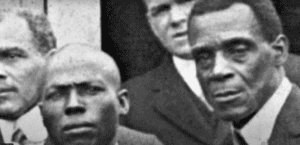
African American Activists in the Modern Era
Today’s African American activists face evolving challenges in the fight for justice. The rise of digital platforms has transformed how activism is conducted, allowing grassroots movements to gain traction and amplify voices previously unheard. Contemporary Activists Making a Difference - Stacey Abrams: Known for her tireless work in combating voter suppression, Abrams has redefined political advocacy, particularly in underrepresented communities. - Colin Kaepernick: Through his peaceful protests against police brutality, Kaepernick reignited conversations around systemic racism, leveraging his platform to push for change. These figures highlight how activism continues to adapt and evolve in response to societal needs. The Digital Age of Activism Movements like Black Lives Matter have redefined modern activism by harnessing the power of social media. Through hashtags, viral campaigns, and online organizing, they have brought attention to critical issues such as police violence and economic inequality, making activism more accessible and far-reaching.Key Themes in African American Activism
African American activists share common threads of resilience, innovation, and a deep commitment to justice. Here are some of the central themes in their work: Intersectionality in Activism Modern activism often addresses overlapping issues of race, gender, and socioeconomic status. Figures like Audre Lorde and Angela Davis emphasized that liberation must encompass all forms of oppression. Education and Empowerment Activists have consistently highlighted education as a tool for liberation. Institutions like Tuskegee University, founded by Booker T. Washington, reflect this ethos, equipping future generations to challenge inequality.How Can You Support African American Activists?
Honoring the legacy of African American activists involves active participation in the ongoing fight for equality. Here’s how you can contribute: 1. Educate Yourself: Dive into books, documentaries, and articles that illuminate the history of African American activism. 2. Amplify Voices: Share stories, initiatives, and campaigns led by Black leaders to increase their reach and impact. 3. Volunteer and Donate: Organizations such as the NAACP Legal Defense Fund and the Equal Justice Initiative rely on public support to drive change. 4. Challenge Inequality: Speak out against racism and injustice in your personal and professional spaces. The Enduring Impact of African American Activism The courage and determination of African American activists have shaped society in profound ways, setting examples for all who seek justice. Their legacies remind us that change is possible when individuals and communities stand united against injustice. Whether through large-scale movements or individual acts of resistance, their contributions continue to inspire.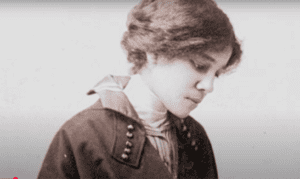
FAQs About African American Activists
- Who are African American activists? African American activists are individuals who advocate for racial equality, social justice, and human rights, often addressing systemic oppression in the United States.
- What did African American activists fight for? They fought against slavery, racial segregation, voter suppression, police brutality, and economic inequality, aiming to achieve equal rights and opportunities.
- Who are some famous African American activists? Notable figures include Frederick Douglass, Harriet Tubman, Rosa Parks, Martin Luther King Jr., Malcolm X, Angela Davis, and Stacey Abrams.
- What role did African American activists play in the civil rights movement? They led protests, organized boycotts, and advocated for laws that dismantled segregation, like the Civil Rights Act of 1964.
- How do modern African American activists make a difference? They tackle issues like police reform, voting rights, and systemic racism through grassroots campaigns, political advocacy, and digital movements.
- What is Black Lives Matter? Black Lives Matter is a modern social justice movement founded in 2013 to combat police brutality and systemic racism affecting Black communities.
- Why is African American activism important? It has been crucial in securing rights and freedoms, fostering cultural shifts, and promoting justice and equality for marginalized groups.
- How did Harriet Tubman contribute to African American activism? Harriet Tubman led enslaved people to freedom through the Underground Railroad, risking her life to combat slavery.
- What impact did Martin Luther King Jr. have? King’s nonviolent approach and speeches, like “I Have a Dream,” were pivotal in advancing civil rights and ending segregation.
- Who was Malcolm X? Malcolm X was a civil rights leader who advocated for Black empowerment and self-determination, often emphasizing self-defense against oppression.
- What is the role of African American women in activism? Figures like Rosa Parks, Angela Davis, and Ida B. Wells have been instrumental in fighting for civil rights, education, and gender equality.
- How has African American activism influenced legislation? Activists have driven laws like the Voting Rights Act of 1965 and inspired reforms addressing racial discrimination in various sectors.
- What challenges do African American activists face today? They confront systemic racism, economic disparities, and opposition to movements advocating for equity and inclusion.
- How can I support African American activists? Support includes educating yourself, donating to relevant causes, amplifying their messages, and engaging in meaningful dialogue.
- Are there African American activists in politics today? Yes, leaders like Stacey Abrams and Ayanna Pressley actively address racial justice and equity through political advocacy.
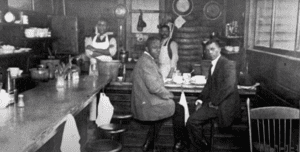
https://howtoplaythedjembedrums.com/african-american-activist/

 Agitation: The Impact of Neglecting African American Voices
The neglect of African American perspectives perpetuates systemic inequality and cultural erasure. It diminishes the societal understanding of issues like racial injustice, identity formation, and the richness of Black cultural expression. Ignoring this literary tradition not only distorts the past but also undermines the ability to address contemporary social challenges effectively.
Agitation: The Impact of Neglecting African American Voices
The neglect of African American perspectives perpetuates systemic inequality and cultural erasure. It diminishes the societal understanding of issues like racial injustice, identity formation, and the richness of Black cultural expression. Ignoring this literary tradition not only distorts the past but also undermines the ability to address contemporary social challenges effectively.

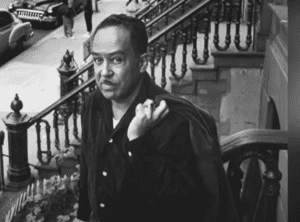 Frequently Asked Questions (FAQs) About African American Literary Criticism
1. What is African American literary criticism?
African American literary criticism is the analysis and interpretation of literature by and about African Americans, focusing on themes of race, identity, oppression, and cultural heritage.
2. Why is African American literary criticism important?
It highlights the contributions of African American writers, uncovers marginalized
Frequently Asked Questions (FAQs) About African American Literary Criticism
1. What is African American literary criticism?
African American literary criticism is the analysis and interpretation of literature by and about African Americans, focusing on themes of race, identity, oppression, and cultural heritage.
2. Why is African American literary criticism important?
It highlights the contributions of African American writers, uncovers marginalized 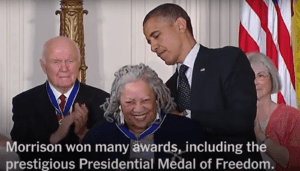 The celebration of cultural heritage further enriches these themes, offering a lens through which authors critique the erasure of Black identity while honoring the resilience of African traditions. These intersections create a multilayered narrative structure, allowing writers to address complex issues holistically. This interconnectedness ensures that the
The celebration of cultural heritage further enriches these themes, offering a lens through which authors critique the erasure of Black identity while honoring the resilience of African traditions. These intersections create a multilayered narrative structure, allowing writers to address complex issues holistically. This interconnectedness ensures that the 
 Cultural Heritage: A Celebration and a Challenge
The celebration of cultural heritage is a central theme in African American literature, offering both a foundation for identity and a means of resistance against cultural erasure. Folklore, music, and oral traditions are frequently woven into narratives, connecting contemporary characters to their ancestral roots. These elements not only celebrate African heritage but also challenge the dominant narratives that have sought to marginalize Black culture.
In works like Zora Neale Hurston’s *Their Eyes Were Watching God* and Alice Walker’s *The Color Purple*, the use of dialect, storytelling, and cultural references highlights the richness of African American traditions. By incorporating these elements, authors assert the importance of cultural pride and continuity, even in the face of oppression.
Additionally, modern authors like Ta-Nehisi Coates and Yaa Gyasi expand on this theme by exploring the diasporic connections between African Americans and their ancestral homelands. This global perspective broadens the thematic scope of African American literature, emphasizing the interconnectedness of Black experiences across the world.
Resilience and Hope: The Heart of African American Literature Themes
At the core of African American literature is a profound sense of resilience and hope. Despite the weight of the themes it addresses, the literature often carries an undercurrent of optimism and possibility. This resilience is reflected in characters who overcome adversity, communities that thrive despite systemic challenges, and narratives that envision a better future.
Hope is a recurring thread, from the spirituals sung by enslaved individuals to the empowering speeches and writings of Civil Rights leaders. This sense of hope inspires readers to believe in the possibility of change, encouraging them to confront injustices and envision a world where equality and justice prevail.
Frequently Asked Questions About African American Literature Themes
1. What are the primary themes in African American literature?
The primary themes include identity, racism and social injustice, resilience, community and family, cultural heritage, liberation, and spirituality.
2. How does African American literature address the theme of identity?
It explores the quest for self-definition, the impact of systemic racism, and the interplay of individual and collective experiences in shaping identity.
3. What role does racism play in African American literature themes?
Racism is a central theme, often depicted through systemic oppression, personal
Cultural Heritage: A Celebration and a Challenge
The celebration of cultural heritage is a central theme in African American literature, offering both a foundation for identity and a means of resistance against cultural erasure. Folklore, music, and oral traditions are frequently woven into narratives, connecting contemporary characters to their ancestral roots. These elements not only celebrate African heritage but also challenge the dominant narratives that have sought to marginalize Black culture.
In works like Zora Neale Hurston’s *Their Eyes Were Watching God* and Alice Walker’s *The Color Purple*, the use of dialect, storytelling, and cultural references highlights the richness of African American traditions. By incorporating these elements, authors assert the importance of cultural pride and continuity, even in the face of oppression.
Additionally, modern authors like Ta-Nehisi Coates and Yaa Gyasi expand on this theme by exploring the diasporic connections between African Americans and their ancestral homelands. This global perspective broadens the thematic scope of African American literature, emphasizing the interconnectedness of Black experiences across the world.
Resilience and Hope: The Heart of African American Literature Themes
At the core of African American literature is a profound sense of resilience and hope. Despite the weight of the themes it addresses, the literature often carries an undercurrent of optimism and possibility. This resilience is reflected in characters who overcome adversity, communities that thrive despite systemic challenges, and narratives that envision a better future.
Hope is a recurring thread, from the spirituals sung by enslaved individuals to the empowering speeches and writings of Civil Rights leaders. This sense of hope inspires readers to believe in the possibility of change, encouraging them to confront injustices and envision a world where equality and justice prevail.
Frequently Asked Questions About African American Literature Themes
1. What are the primary themes in African American literature?
The primary themes include identity, racism and social injustice, resilience, community and family, cultural heritage, liberation, and spirituality.
2. How does African American literature address the theme of identity?
It explores the quest for self-definition, the impact of systemic racism, and the interplay of individual and collective experiences in shaping identity.
3. What role does racism play in African American literature themes?
Racism is a central theme, often depicted through systemic oppression, personal 